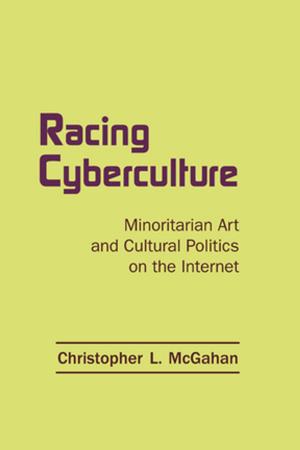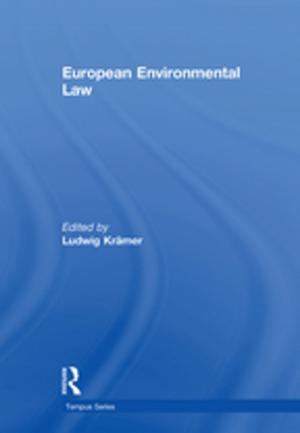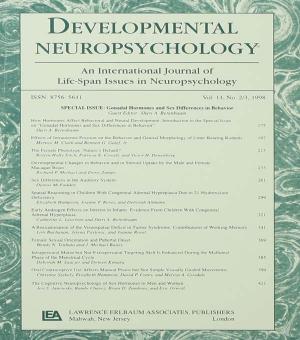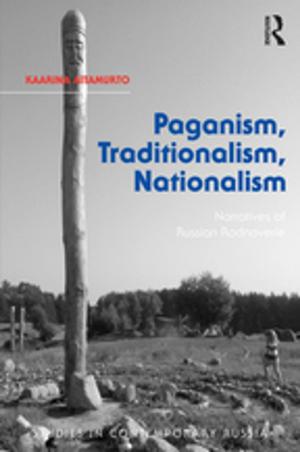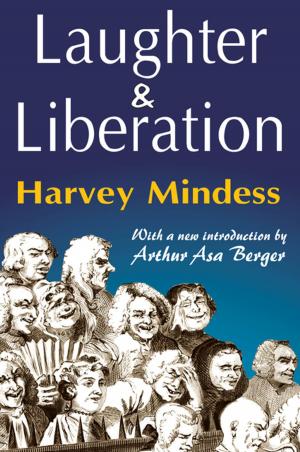The Teaching Library
Approaches to Assessing Information Literacy Instruction
Nonfiction, Reference & Language, Language Arts, Library & Information Services, Education & Teaching| Author: | ISBN: | 9781317965381 | |
| Publisher: | Taylor and Francis | Publication: | April 10, 2014 |
| Imprint: | Routledge | Language: | English |
| Author: | |
| ISBN: | 9781317965381 |
| Publisher: | Taylor and Francis |
| Publication: | April 10, 2014 |
| Imprint: | Routledge |
| Language: | English |
Get the information needed to advocate for the significance of your library!
How do you make the case that your library is a valuable instruction center? The Teaching Library helps librarians assess data on information literacy instruction programs so that they can better support the teaching role of the academic library in campus settings. This practical, professional resource features case studies from across the United States and Canada-in both public and private institutions-that offer a variety of evaluation methods. Here are the latest, easy-to-adopt ways of measuring your library’s direct contribution to student learning, on-campus and off.
With a unique multifaceted approach to questions of assessment, The Teaching Library is an important resource that not only offers the latest techniques, but answers the larger question of how to make use of this data in ways that will best advocate information literacy instruction programs. From creating a multidimensional assessment to turning an initiative into a program to teaching and learning goals and beyond, this invaluable text covers many of the core issues those in this rapidly-evolving field must contend with. These contributions reinforce the importance of the learning that takes place in the classroom, in the co-curriculum, the extra-curriculum, and the surrounding community.
Some of the key topics covered in The Teaching Library are:
- assessment practices such as 360° analysis, attitudinal, outcomes-based, and gap-measured
- integrating the teaching library into core mission, vision, and values statements
- presenting the message of a library’s value to internal audiences of colleagues
- building momentum-and maintaining it
- tying information literacy assessment to campus-wide assessment activities
- identifying and reaching end-of-program learning outcomes
- assessing the impact of the one-shot session on student learning
- information literacy instruction and the credit-course model
- promoting instruction among Library and Information Science educators
- and many more!
The essays in The Teaching Library offer viable and practical ways for librarians to demonstrate their direct contribution to student learning in ways consistent with those accepted as valid across the campus.
An important resource for academic librarians and Information Science professionals, The Teaching Library is also a useful tool for those in the campus community concerned with developing, funding, and continuing successful library programs-professional staff such as alumni directors; faculty and educators looking to make students more successful; and researchers.
Get the information needed to advocate for the significance of your library!
How do you make the case that your library is a valuable instruction center? The Teaching Library helps librarians assess data on information literacy instruction programs so that they can better support the teaching role of the academic library in campus settings. This practical, professional resource features case studies from across the United States and Canada-in both public and private institutions-that offer a variety of evaluation methods. Here are the latest, easy-to-adopt ways of measuring your library’s direct contribution to student learning, on-campus and off.
With a unique multifaceted approach to questions of assessment, The Teaching Library is an important resource that not only offers the latest techniques, but answers the larger question of how to make use of this data in ways that will best advocate information literacy instruction programs. From creating a multidimensional assessment to turning an initiative into a program to teaching and learning goals and beyond, this invaluable text covers many of the core issues those in this rapidly-evolving field must contend with. These contributions reinforce the importance of the learning that takes place in the classroom, in the co-curriculum, the extra-curriculum, and the surrounding community.
Some of the key topics covered in The Teaching Library are:
- assessment practices such as 360° analysis, attitudinal, outcomes-based, and gap-measured
- integrating the teaching library into core mission, vision, and values statements
- presenting the message of a library’s value to internal audiences of colleagues
- building momentum-and maintaining it
- tying information literacy assessment to campus-wide assessment activities
- identifying and reaching end-of-program learning outcomes
- assessing the impact of the one-shot session on student learning
- information literacy instruction and the credit-course model
- promoting instruction among Library and Information Science educators
- and many more!
The essays in The Teaching Library offer viable and practical ways for librarians to demonstrate their direct contribution to student learning in ways consistent with those accepted as valid across the campus.
An important resource for academic librarians and Information Science professionals, The Teaching Library is also a useful tool for those in the campus community concerned with developing, funding, and continuing successful library programs-professional staff such as alumni directors; faculty and educators looking to make students more successful; and researchers.







